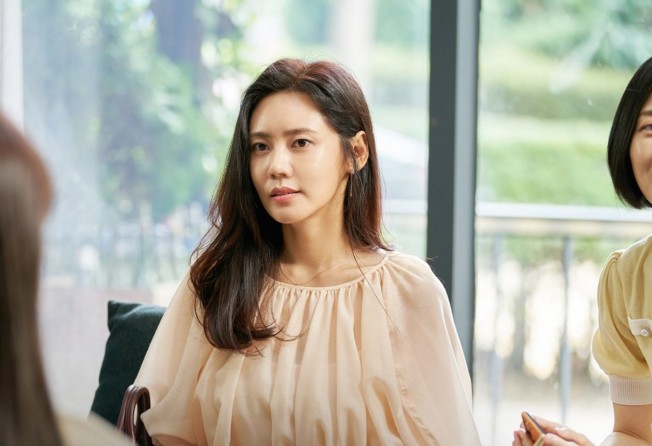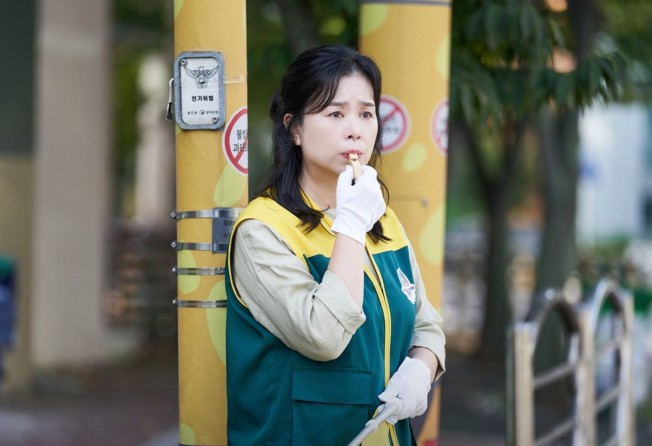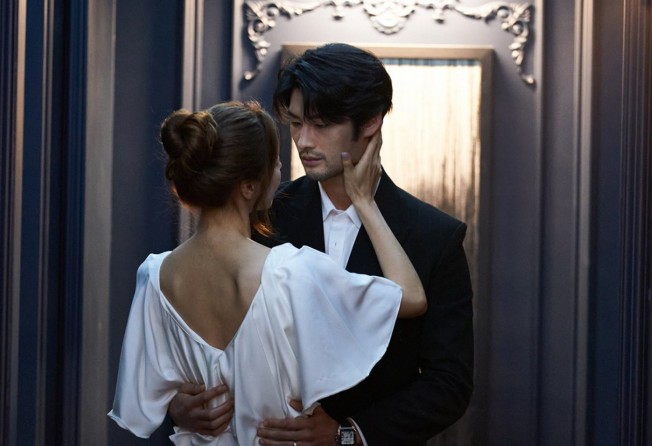Netflix K-drama Green Mothers’ Club: tiger mothers juggle competitive education and melodrama
- Set in Korea’s pressure-cooker education system, drama series Green Mothers’ Club follows mothers trying to get their children into the best universities
- Apart from their machinations, the fictional characters also have secrets threatening to spill out

This article contains mild spoilers.
South Korea’s notoriously high-pressure education system once again comes under the spotlight in the new tvN tiger-mom melodrama Green Mothers’ Club.
Lee Yo-won, Choo Ja-hyun, Kim Gyu-ri, Jang Hye-jin and Joo Min-kyung lead this series as mothers from different backgrounds to children in the same class in a school with a strong track record for getting its students into top universities.
In a competitive society like Korea’s, getting ahead is no mean feat, particularly when most of the spots at prestigious universities are destined for high-society children to begin with.
To get the edge over the masses of other hopefuls for the scant few slots available, mothers are known to enrol their children in a dizzying variety of after-school programmes, and keep the studying machine churning through the few remaining hours their progeny spend at home.
Lee Eun-pyo (Lee) has just moved into a bright new flat in a bright new neighbourhood with her policeman husband (who we don’t see very much of) and her two children Dong-seok (Jung Si-yul) and Dong-ju (Lee Chae-hyun).
Eun-pyo bristles at the behaviour of the other mothers, led by queen tiger mother Byun Chun-hui (Choo), who devote all their energies to the education and grooming of their elementary school-age children.
To the shock of her new neighbours, Eun-pyo reveals that she doesn’t send her children to after-school academies. She believes children should play outside and be able to avoid pressure at their age.
She doesn’t want to be “that kind of mom”, a slip that immediately alienates her from the group.
At first, Green Mothers’ Club seems to be critical of the pressure-cooker system Korean children are subjected to from a young age. But as the opening episode wears on, we see how at sea and careless Eun-pyo is as a mother.
Her older son Dong-seok is an attention-deficient brat who manages to interrupt Chun-hui’s daughter’s music recital and smash her violin in the same scene.
If Dong-seok is supposed to be the product of a stress-free childhood, perhaps the show isn’t advocating for less stressful child-rearing.

Green Mothers’ Club also embodies the frustrating paradox, seen in so many K-dramas, where the inequity of a classist society is foreground in a narrative that also demonstrates that members of high society are innately better than other people.
Chun-hui may be the mother who pulls most of the strings in the community, but the one looked up to by all the other mums is Seo Jin-ha (Kim), the so-called ‘goddess’ who lives in the fancy penthouse in the same complex as Eun-pyo and Chun-hui.
Jin-ha is elegant and artistic and married to a French-born Korean named, for some unfathomable reason, Luis Bunuel (Roy), like the legendary surrealist Spanish filmmaker.
The pair glide through the navy blue-panelled luxury abode, whispering atrocious French to each other; this native French speaker couldn’t understand a word.
But I digress. Jin-ha, who was born into high society, dotes on her son Henry (Shin Seo-woo), but takes a far less active role in his school activities and seems to demand a lot less of him at home.
This doesn’t matter, though, because Henry has enough natural talent to be the best at everything he does. He is a wonderful painter and speaks at least five languages fluently.

On the other hand, Chun-hui’s aggressively schooled children also excel, but they are no match for Henry, who just seems to have been born with it, presumably because he had the right society genes.
The show began with Eun-pyo’s dream scene of a lecture during which she discusses something called the ‘Salieri Syndrome’, referring to composer Antonio Salieri’s acknowledgement and bitter jealousy of Mozart’s innate talent, as fictionalised in the film Amadeus.
Eun-pyo explains that his is the curse of the critic, to recognise talent but not have any of their own (ouch).
Education may dominate these mothers’ lives, but like in any good melodrama worth its salt, each of these characters also have hidden secrets, threatening to spill out at the wrong moment.

In a storyline highly reminiscent of last year’s Reflection of You, we learn that Eun-pyo and Jin-ha used to be very close in their youth, when they both strove to be artists, and spent time studying in Paris. Jin-ha’s husband used to be Eun-pyo’s beau, until he laid eyes on Jin-ha.
Eun-pyo can’t even bring herself to speak in the presence of Jin-ha, who seems oblivious to Eun-pyo’s pathologically antisocial behaviour.
Eun-pyo becomes visibly ill after meeting her old acquaintance, and when she bumps into Luis outside school she faints. Incidentally, Lee’s French, spoken in her past and present scenes with Roy, is quite impressive.
These former Parisian friends aren’t the only mothers with backstories. Chun-hui is making some mysterious calls and darting around in the middle of the night, while Eun-pyo’s friend Park Yoon-joo (Joo) does some curious moonlighting to pay for her children’s tuition, and Chun-hui’s rival Kim Young-mi (Jang) also appears to have more going on beneath the surface.

As all these secrets come out, perhaps it’ll do these mothers some good to focus on something other than their children.
Green Mothers’ Club is streaming on Netflix.